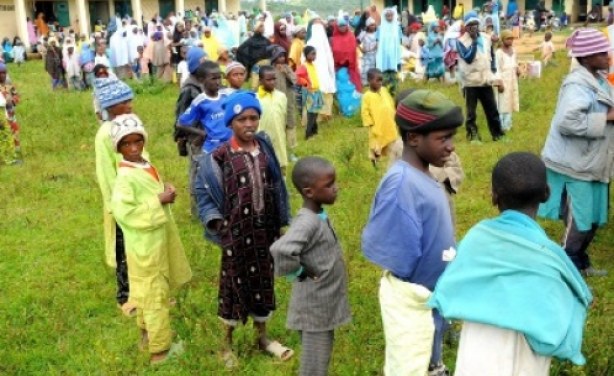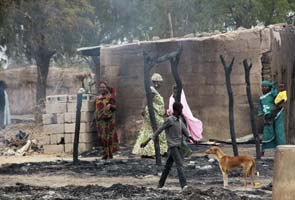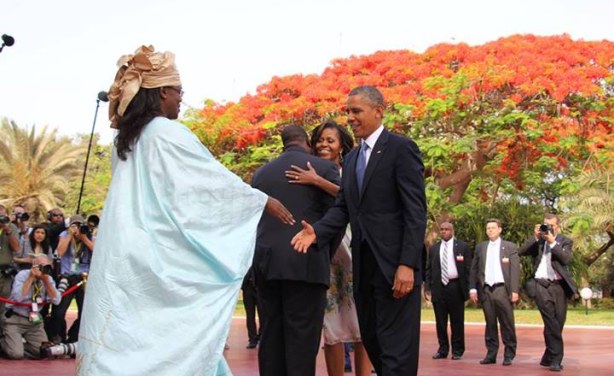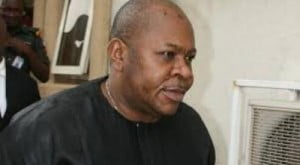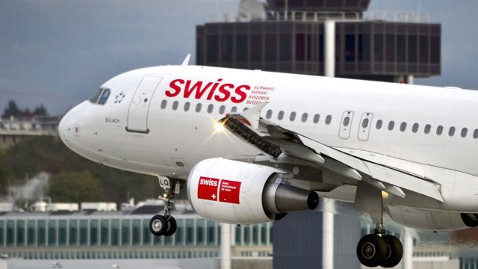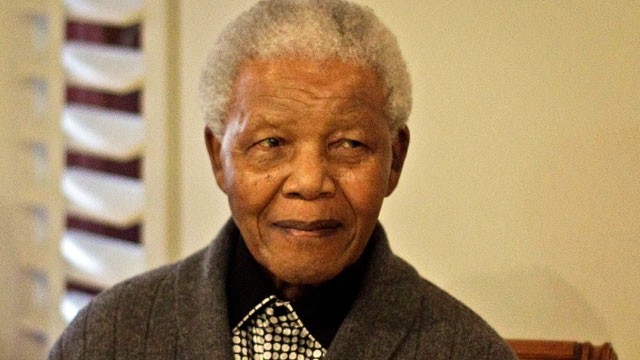Bodun Sodeinde: My physical and spiritual attachment to ‘Welcome to Lagos’ statue

Renowned sculptor, Dr. Bodun Sodeinde, is a reporter’s delight any day. He is an artist personified and always cherish discussing it. He’s the man that created the now ubiquitous ‘Welcome to Lagos’ statue in the year 1991. In this interview, Sodeinde, revealed that although he’s proud of the creating the statue, at the entry of Lagos, stated that it’s causing him sleepless nights, as he had had cause to effect repairs on it from time to time.
He spoke on his career, passion and others.
Tell us what the ‘Welcome to Lagos’ statue stands for and how it came about?
In 1989, Lagos State government commissioned me to erect a statue of unknown soldiers where they placed wreaths every January 15, sometimes in terms of making a bid by what had been identified by them. To do this, I was contacted, with others, to put in a bid for the erection of a beautiful statue, in abstract form, to welcome visitors to Lagos. Governor Raji Rasaki, then, was definite about it being in abstract form, as opposed to realistic work. I went back and began my research. That research gave birth to what we now have as ‘Welcome to Lagos’ statue. He did not give it any name or title then. The concept, interpretation and everything came from me.
Immediately the brief was communicated to me, my first thought was: how do people greet in the traditional mode in Lagos of those days? I went and consulted with the late Oba Adeyinka Oyekan, who gave me and even demonstrated all the modes of greetings, of especially the royalties. It is referred to as ‘Owo Awo.’ There was nothing like handshake as we have now, he enthused. He stated that any time the need arose for him to send emissaries to other royalties, government and nobles, he usually sent two or three white cap chiefs, who usually demonstrated the royal greetings, as represented by what we have, via those images.
After the monarch’s briefing, I went to a tailor with the white robe, modelled out what the king had demonstrated and visually painted. I engaged a photographer to capture same, the result is what we have there today. Apart from being an artist, I am an education technology cum communication expert, and that edge was brought to bear in the interpretation of the whole thing. When the statue was officially unveiled, Raji Rasaki was impressed with the outcome. He commended me for a job well done and urged me to keep it up.
You have had cause to renovate the statue over the years. How many times and why?
Yes, the statue had been renovated four times. The first time, government was to embark on the road expansion; so relocation was inevitable. Therefore, there was need for repairs. Then, it was relocated to Magodo axis, near the first bridge. You know that for it to be moved, there is no way little damages, here and there, will not occur; so I was made to move it, to ensure broken or chipped off parts could be put back. That was in Senator Bola Tinubu’s era. The second time, somebody damaged a portion of it. It was an attack! And it must have been carried out with a sledge hammer, as a hole was caused on a very visible part of the monument. I was summoned and I duly effected repairs. That must be about three years after the first and still in the same regime. One Mr. Balogun was the then commissioner for culture. He oversaw the two initial assignments.
The third time repair was effected a trailer was alleged to have run into the base, destroying the pedestal; so they thought it wise to move it once again, to ensure its safety. That necessitated the movement to Olowopopo Avenue, where it is now. The last time was when some arsonists used bonfire and sledge hammer attacks to damage it. Yes, the attacks were carried out separately. Funny enough, the sledge hammer, which may have been used, was found at the base. It must have been dropped as a result of the hurried vandalisation. The intention of the vandals was to completely have it destroyed, but for the massive reinforcement. So when the fire option failed, the sledge hammer option was employed, hence the multiple chipped off parts. The forgotten hammer was enough proof. This happened in August 2012.
Why, in your view, would you think anyone would want to destroy the statue
Definitely sabotage was at play. The evidences were there. When it was at the Berger Bridge end and a hole was made into it, I saw elements of sabotage at play because it was impossible for such a gaping hole to manifest outside, a deliberate heavy impact and bombardment. Second time, when it was razed, tyres were found around it. The intention points to a motive to burn it to ashes. So these were purely with traits of sabotage. For what reason I ask? But then, many theories were propounded. The first was that the destruction may have been carried out with an insider pledging to influence ‘his own man’ to corner the repair work contract. Another theory was a claim, in some quarters, that Lagos State desired that the monument be worshipped: I mean to institutionalise idol worshipping of the structure and some people opposed it. Yet another version has it that a fatal accident occurred there, which resulted in loss of lives. It was claimed that the driver of the unfortunate vehicle lost concentration, while admiring the statue and thus drew the anger of bystanders.
The last version was hinged on the spill-over of last year’s fuel subsidy removal protest with which I disagree. One, the attack must have taken place a month or thereabout after the protests. I drive past there regularly. Two, the attacks did not take place just once. Our inspection, as I stated earlier, was based on the arson allegation only for us to discover the sledge hammer angle and evidence about three to four days later.
Based on all you have said, does it mean you keep watch over the statue. Also, would it be wrong to say that you have spiritual attachment to this statue?
Your question is like asking an author what he would do with the manuscript of his book. Do you imagine how he would feel if the manuscript gets destroyed? That is exactly the way you can appreciate what am going to say. In artistic endeavours, what the artist does is the visual equivalent of what a writer does. A writer writes, using the language of alphabets and words, whereas an artist communicates using iconic language, by employing the use of figures and images to communicate. You can see the difference. In the world of an artist, if it is painting, it is only one. If it is sculpture, it is only one because if you talk about arts, you are talking about only two modes of arts: painting or sculpture. An artist produces only one of everything he does. All the others are pictures of the same thing: not the real thing.
If you appreciate it from that angle, when anything happens to that work, that manuscript, you feel you are finished. That was why I felt the way I feel when there was arson attack on the statue. I felt like I was burnt. So you can understand why I developed so much enthusiasm, to ensure the restoration, whenever anything untoward happened to any of my monuments. So, this time around when the hand was chopped off, I felt like a limbless person.
Is the statue your most celebrated work?
Yes, it is judging by the general acceptance, but I cannot say it is my best. As far as I’m concerned, all are equally rated. But quite unexpectedly, people took unusual interest in the ‘Welcome to Lagos’ statue, so it is the most celebrated. Honestly, it seemed to be the most celebrated in the whole country if not in the whole of Africa. And the reason for this is not far-fetched. It has grown to become the icon of Lagos. During the last Eko 2012 festival, it adorned all posters and paraphernalia. At that time, when you turned on your television, that’s what you see if anything about Lagos is to be broadcasted. The image of the statue has over the years been acceptable to be the face of Lagos. The moment anyone sees the monument being beamed, it is certain what would be talked about is sure to be about Lagos.
Apart from monetary values derived from your works, are you pleased with your accomplishments and are you a fulfilled person?
I feel extremely elated, although I have deep regrets sometimes. My regrets reside in the fact that I have never ever been publicly honoured for my works, particularly the ‘Welcome to Lagos’ statue. I have never, been invited by government to do anything. Maybe during an awards ceremony you may be acknowledged and recognized, like some musicians were. Take, for instance, the late Pa Fatai Rolling Dollars, the late minstrel ‘ Kokoro’ and a host of others. All these people were honoured, in one way or another, over the years. I am surprised that despite the importance attached to my works, I remain baffled to note that not even once have I been called upon to be acknowledged, or even taken part in any cultural event in the state. This is despite the fact that I was the pioneer director of the Lagos State University museum.
Board of Arts and Culture is there. There is a Records and Archives board; even skill acquisition centres, with arts content. All these are places I could be relevant. These types of recognition that I have not got is embarrassing and regrettable. I ask myself, could it be they think am not sufficiently educated? I have been on every important programmes and body while and in LASU. I was a member of the university’s Senate, member of Academic and Technical, member Lagos State University governing Council, and that of Lagos State Polytechnic by virtue of representing the senate of LASU. It is not that am hungry for appointment, but I feel I deserve more recognition. Imagine, some of the institutions I mentioned. Funny enough, they are manned by some of my former students, who themselves also wondered why am not involved. For instance, the Lagos State Archives Bureau is headed by one of them presently: I do not want to mention name.
If called upon by other states to put up a similar monument, would you be ready to undertake such?
An artist is an artist any day. I had once been called upon to create one for Osun State before, though by a club. But it never saw the light of day. I guess they faced the challenge of raising funds and it was rested. I had the creative impression already mapped out and conceptualised, but what can I do? Perhaps, now that we have Ogbeni Rauf Aregbesola, who is so passionate about culture and tradition at the helms, the initiative may be revived. Every state has peculiar history. All one has to do is thorough research and come up with what will be generally acceptable by the people.
How long do you think it would take you to build such?
It cannot be more than six to seven months. It took me six to seven months to build ‘Welcome to Lagos’ statue.
At over 71 years, are you still capable of undertaking such magnitude of job considering delicate aspects of climbing ladders and scaffolds?
Age is never a hindrance in arts and creativity. I have lived all my life in the arts. I may not be able to demonstrate the kind of agility that was employed during the creation of ‘Welcome to Lagos’ statue; that was why I said it would take about seven months at most to do it. Besides, I have my boys around. It is team work.


